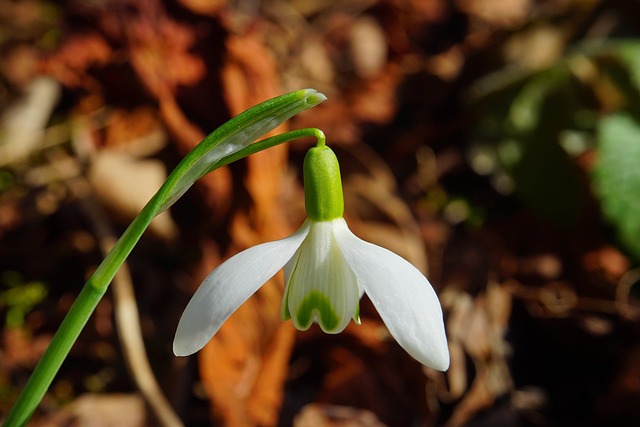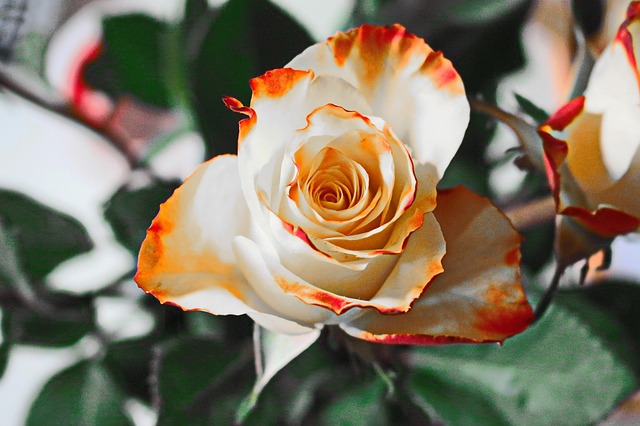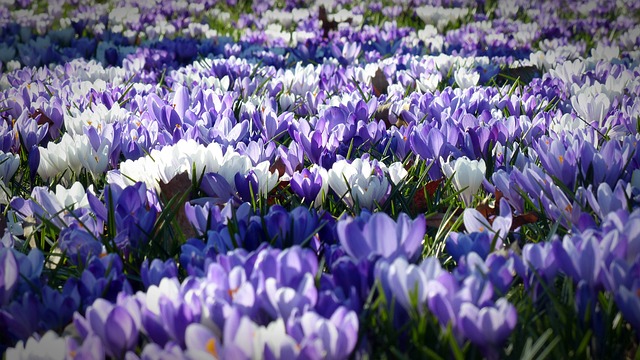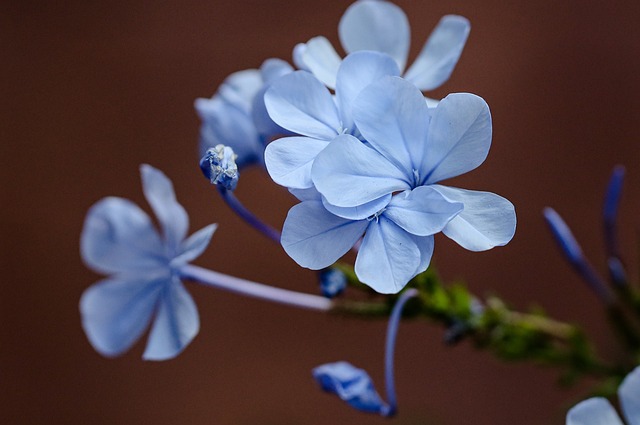
Organic gardening can help you to landscape in environmentally safe ways. It can also provide you with healthy foods to eat. Don’t buy from the stores, grown your own. Keep reading to learn how to get started with organic horticulture.
Insects and various garden pests can be avoided by making your soil healthy. If you create healthy plants, they are going to be stronger and therefore, less likely to succumb to diseases and insects. To increase your garden’s likelihood of producing strong and healthy plants, use high-quality soil containing minuscule amounts of chemicals, which will eventually collect salts.
Flower Beds
Use both annuals and biennials to add a splash of color to your flower beds. These usually grow quickly, and provide an easy-to-change solution to making your flower beds bright and beautiful. They allow you to select different flowers from one year or season to the next. Use these beautiful flowers to line your driveway, surround trees and shrubs, and for decorative hanging baskets. Some flowers you can use are rudbekia, petunias, cosmos, marigolds, or sunflowers.
You don’t need a costly chemical solution to deal with powdery mildew in your garden. Put a little baking soda and some dish soap in water. Once a week, spray this solution on your plants and your mildew should disappear in no time. This mixture will not hurt your plants and it will eliminate the mildew slowly but efficiently.
Before you even start planting the garden, check the soil. Consider getting a soil analysis and working on enrichment techniques for giving your garden a vibrant and healthy environment. A Cooperative Extension office can provide you with this service, saving you learning on your own by trial and error.
Be sure to weed your garden. Weeds can take over a healthy garden faster than you think. For this task, try using white vinegar. White vinegar is a weed killer! By placing a white vinegar solution in a spray bottle, you can spray the weeds away instead of having to pull them out manually.
Try growing some cat grass or wheat grass in the vicinity of the plants that your cat likes to eat. You could also place something that will cause your cat to go away from your plants, such as citrus peels or mothballs.
Your vegetable garden should get at least six hours of sun daily. Almost all vegetables need this much sunlight, so that they can grow correctly and in a shorter amount of time. This also rings true for some of the flowers.
If you are going to grow peas, start them inside rather then planting them outdoors. If you plant them inside, they might germinate more effectively. Seedlings will grow stronger, and withstand attacks from pests and diseases a lot better. You can transplant the seedlings outside after they are sturdy enough.
Purchase a wheelbarrow, and a kneeling stool to use in your garden. Spending time on the ground is rough on the knees, a portable and light stool can help make gardening easier. A wheelbarrow will come in handy to easily move dirt, rocks and other heavy objects.
If you have a problem with your dog disturbing your garden, you can repel him by spraying perfume or other scents on the grass near the edge. This can make scents that dogs are attracted to, and make your garden less interesting in general for pets.
When horticulture, protecting your knees is important. It’s difficult for most people to bend while standing, especially at the waist. Kneeling is a preferred way to get to your plants while minimizing back pain. A kneeling pad can be placed under your knees to help reduce the pain from compression.
If you have a cut on your hand, take the time to make sure it is either healed or completely covered before you put your hands in the soil. A cut or abrasion can become infected if it is not properly protected from dirt, pesticides and other irritants. Look for newer bandages which are able to completely seal your cut.
Spacing is one of the primary considerations when planning an organic garden. You can easily underestimate how much space the plants need until they begin to grow. Your plants will need the space not only because of their physical size, but also because the space will provide air circulation for the garden. Plan your garden carefully and leave enough space between the seeds.
Do not let your gardening chores add up. No matter what your schedule is like, you should be able to fit in small things that will help you avoid having an overwhelming amount of work all at once. For example, pull a few weeds if you’re outside and waiting for your dog to finish his business.
Control Weeds
It is possible to control weeds with natural methods. A good thick layer of newspaper can be laid down to control weeds. Weeds require sunlight to grow. When you put newspaper on top of weeds they will suffocate because they are not getting enough light. Newspapers tend to break down into compost nicely. You can add mulch on top for aesthetic reasons.
You will no longer have to purchase your produce. Use these suggestions listed here to produce fruit and veggies.









